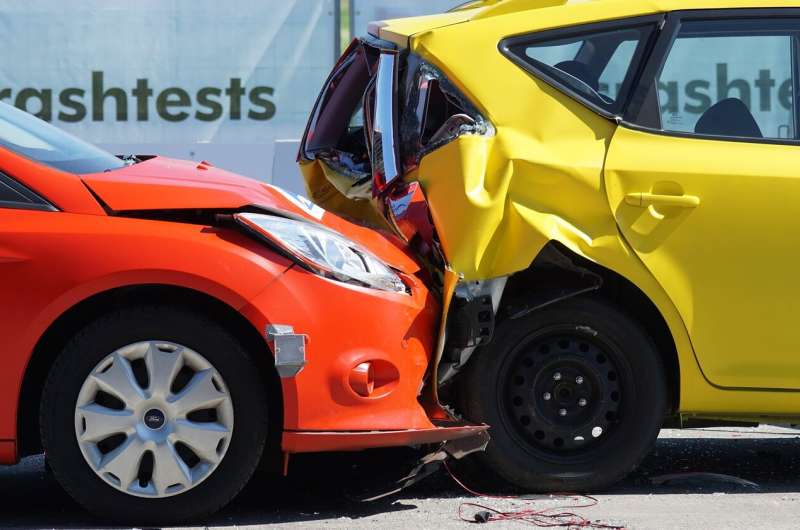Speed identified as the best predictor of car crashes

Speeding is the riskiest kind of aggressive driving, according to a unique analysis of data from on-board devices in vehicles.
Researchers at the University of Waterloo examined data from 28 million trips for possible links between four bad driving behaviours—speeding, hard braking, hard acceleration and hard cornering—and the likelihood of crashes.
Their analysis revealed speeding is a strong predictor of crashes, while statistically significant links for the other kinds of aggressive driving couldn't be established.
"For insurance companies using this telematics data to assess who is a good risk and who isn't, our suggestion based on the data is to look at speed, at people driving too fast," said Stefan Steiner, a statistics professor in Waterloo's Faculty of Mathematics.
Data for the study came from insurance companies in Ontario and Texas with clients who had on-board diagnostic devices installed in their vehicles.
In the first study of its kind, researchers initially analyzed the data to identify 28 crashes based on indicators such as rapid deceleration.
Each vehicle in those crashes was then matched with 20 control vehicles that had not been in crashes, but were similar in terms of other characteristics, including geographic location and driving distance.
When the crash cases were compared to the control cases using a sophisticated penalty system for the four kinds of bad driving, speeding emerged as the key difference between them.
"Some of the results are no surprise, but prior to this we had a whole industry based on intuition," said Allaa (Ella) Hilal, an adjunct professor of electrical and computer engineering. "Now it is formulated—we know aggressive driving has an impact."
Steiner cautioned that the study was limited by several unknowns, such as different drivers using the same vehicle, and more research is needed to verify the results.
But he said the analysis of telematics data could eventually revolutionize the insurance industry by enabling fairer, personalized premiums based on actual driving behaviour, not age, gender or location.
Hilal believes the data could also make roads safer by giving drivers both tangible evidence and financial incentives to change.
"Having this information exposed and understood allows people to wrap their minds around their true risks and improve their driving behaviours," she said. "We are super pumped about its potential."
More information: Manda Winlaw et al, Using telematics data to find risky driver behaviour, Accident Analysis & Prevention (2019). DOI: 10.1016/j.aap.2019.06.003




















